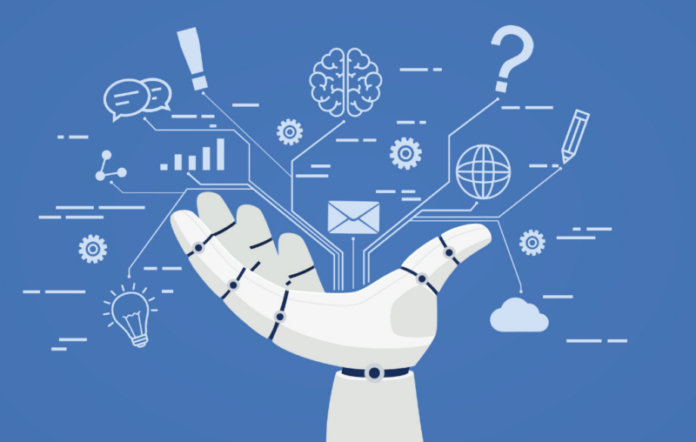Artificial Intelligence (AI) has revolutionized various industries and marketing is no exception. One of the most significant advancements AI brings to the table is in real-time marketing attribution.
This process involves determining the value of each customer interaction that leads to a conversion, such as a sale or sign-up. Traditional methods often fall short due to the complexity of modern customer journeys, but AI offers a more nuanced and accurate approach.
This article explores the benefits of using AI for real-time marketing attribution, providing insights into how it enhances marketing strategies, optimizes spend, and improves overall business outcomes.
4. Analyzing Customer Journeys

In the digital age, customer journeys are complex and multi-faceted, involving numerous touchpoints across various channels. Traditional attribution models like first-touch or last-touch attribution are overly simplistic, failing to capture the entire customer journey.
AI-powered attribution models, on the other hand, analyze vast amounts of data in real-time. These models use advanced algorithms to identify patterns and correlations within customer interactions, providing a holistic view of the customer journey.
AI models consider factors such as the timing, frequency, and sequence of interactions. This allows marketers to understand the true influence of each touchpoint. An ad seen on social media may contribute to a later purchase made via a search engine. By recognizing these patterns, AI helps allocate credit more accurately, ensuring that all significant interactions are acknowledged.
3. Optimizing Marketing Spend
One of the primary advantages of AI in marketing attribution is its ability to optimize marketing spend. Accurate attribution means that marketers can identify which channels and campaigns are most effective. This allows them to reallocate resources to high-performing areas and refine their strategies for better results.
AI algorithms continuously learn and adapt based on new data, improving their accuracy over time. This dynamic learning process enables marketers to fine-tune their attribution models, ensuring that their marketing efforts remain effective and efficient. Additionally, AI can uncover hidden patterns within the data, revealing insights that human analysts might miss. These insights can lead to new opportunities and more informed decision-making.
Tools and Techniques for AI-Driven Marketing Spend Optimization
There are several AI-driven tools that marketers can utilize to optimize their marketing spend. Tools like Google Attribution, Adobe Analytics, and HubSpot’s AI-powered analytics offer advanced features for tracking and analyzing marketing performance.
These tools leverage machine learning algorithms to provide actionable insights, helping marketers allocate their budgets more effectively and achieve higher ROI.
2. Enhancing Return on Investment (ROI)

Improving ROI is a crucial goal for any marketing strategy. AI-powered attribution models contribute to this by providing a deeper understanding of customer behavior. This understanding allows marketers to deliver more personalized and relevant messages, increasing engagement and conversion rates.
AI enables multi-touch attribution, which considers all interactions along the customer journey. By valuing each touchpoint, marketers can tailor their strategies to address the needs and preferences of their audience more effectively. This personalized approach fosters brand loyalty and drives conversions, ultimately enhancing ROI.
Key Metrics for Measuring AI Impact on ROI
To effectively measure the impact of AI on ROI, businesses should track key performance indicators (KPIs) such as:
- Conversion rates: The percentage of users who take a desired action.
- Customer lifetime value (CLV): The total revenue a business can expect from a single customer account.
- Return on ad spend (ROAS): The revenue generated for every dollar spent on advertising.
- Customer acquisition cost (CAC): The cost associated with acquiring a new customer.
These metrics provide valuable insights into the effectiveness of AI-driven marketing strategies and help businesses optimize their ROI.
1. Real-Time Insights

Traditional attribution methods often involve retrospective analysis, leading to delays in decision-making. AI, however, provides real-time insights, allowing marketers to adjust their campaigns on the fly. This agility is crucial in today’s fast-paced digital environment, where timely adjustments can significantly impact campaign success.
Real-time insights enable marketers to respond quickly to changes in customer behavior, optimizing their strategies for maximum impact.
For example, if a particular campaign is performing exceptionally well, marketers can increase investment in real-time to capitalize on its success. Conversely, if a campaign is underperforming, they can make immediate adjustments to improve its effectiveness.
Overcoming Challenges
While AI-powered attribution offers numerous benefits, it also presents challenges that businesses must address. One significant challenge is the quality and accessibility of data. AI algorithms rely on large amounts of high-quality data to produce accurate insights. Therefore, businesses must ensure they have access to comprehensive and reliable data sources.
Another challenge is interpreting AI-driven insights. While AI can uncover complex patterns within data, translating these insights into actionable strategies can be difficult. Investing in data visualization tools and training programs can help marketers better understand and leverage AI-driven insights.
Ethical considerations around data privacy and consumer consent are crucial. Businesses must adhere to strict regulations and guidelines to ensure they collect and use customer data responsibly. Transparency and consent are key to building trust with customers and maintaining compliance with data protection laws.
Future Directions

As AI technology continues to advance, its role in marketing attribution will only grow. Future developments may include enhanced capabilities in natural language processing (NLP) and sentiment analysis. These advancements will enable AI algorithms to analyze unstructured data from social media, customer reviews, and support interactions, providing deeper insights into customer sentiment and preferences.
The integration of AI-powered attribution with other marketing technologies, such as customer relationship management (CRM) systems and content management platforms, also holds promise. This integration will enable seamless omnichannel marketing experiences, breaking down data silos and fostering cross-functional collaboration. By delivering more cohesive and personalized experiences, businesses can enhance customer satisfaction and drive better outcomes.
Conclusion
AI-powered attribution models offer significant advantages over traditional methods, providing more accurate and comprehensive insights into customer journeys. By optimizing marketing spend, enhancing ROI, and providing real-time insights, AI empowers businesses to make more informed decisions and improve their marketing strategies.
Challenges such as data quality and ethical considerations must be addressed to fully harness the potential of AI. As AI technology continues to evolve, its impact on marketing attribution will undoubtedly grow, driving innovation and transformation in the digital marketing landscape.







